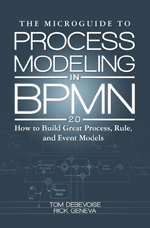Essays I have authored in the past generally focused on various methodologies and technologies revolving around business decision management – business process, business rules and analytics. I’ve always been quite interested in the past, present and likely future of these capabilities and their application in various real world domains.
For the last several years I have been wholly involved with applied decision management in the financial services arena. While there has been an almost unfathomable amount of turmoil in these businesses over the past several years, I was still very surprised to recently hear a loud cry from the mortgage industry that “technology got us into the trouble that we are in today!”























